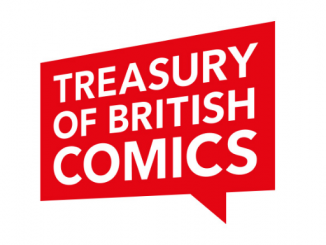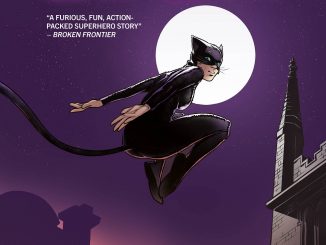Over at Comic Book Resources there is an interview with ‘Echo’ creator Terry Moore.
Towards the end of the interview, Terry was asked about Digital Comics:
Wrapping up, one of the issues on everybody’s mind this weekend, following DC’s same-day digital initiative announcement, is that of digital comics. As someone who is best known for his creator-owned work, who releases books through his own imprint, what is your stance on digital comics and what do you think the future holds there?
Well, my stance on digital comics is that, in theory, I’m all for them because they look gorgeous on the computer. My comics look better on my Mac screen than they do in print, so I’d be happy to share that experience. How we’re going to share it is the debate. I’ve never put my comics up on the web, because you’re just giving it away. So far, nobody’s really been able to come up with a business model that replaces print income. So, that’s what we’re working for. Where is the income? We have the tools and we have the toys, but nobody can make a house payment with it yet. I’ll know it’s arrived when I look at an article about Neil Gaiman bashing some huge number out of the park with his digital version. When Neil Gaiman sets the bar, then we’ll all be able to do it. He’s the canary in the mine, so to speak. The answer’s not going to come from Artist Alley, it’s going to have to come from some icon that sets the way for us. I’m keeping my eye on those guys. I’m keeping my eye on Neil and Frank Miller and what they do. Everyone else is just trying to come up with a stupid iPod app and trying to figure out a way to sell it for 99 cents and hoping that iTunes will carry it and hoping that with the global market, the numbers will add up. So far, that has not worked. That’s been around for a long time, guys. So far, the only people that have made any money off the internet is the porn industry.
One of the problems is — I’ve been meeting a ton of people over the last two years, and everybody the age of 26 and over think the internet should be a free market. Everything’s free. These are the people that watch their TV show and everything on the internet. But when I’m meeting college kids, the 22- and under set, they’re more materialistic. They’re buying the vinyl, they’re buying the comic books — there’s a different mentality coming right up in the working set. They’re not in the working set yet, but when they come up, they’re going to balance out the 30-somethings that think that everything is fair game.
I think we’re going to get some temporary set-ups over the next few years on digital and we’ll all do the best we can, but when today’s college workforce hits, I think we’re going to probably get a better balance. In time, we’re going to get both. It’ll be like buying a table and a chair. On the one hand, you’ve got your beautiful Adam Hughes book that you love to look at, and then you’ve got your 600-page novel on your iPad on the airplane, where it’s a very convenient read. But I would rather own a Frazetta than own a JPEG of a Frazetta. The thing is, all your JPEGs are worthless. You’re talking about an inherently worthless product. All your digital books will be worthless. This is the exact same syndrome that collapsed the financial industry, it collapsed the real estate industry — we sure don’t need it to come along and kick comics’ butt and just make us extinct. We don’t want to switch over to an inherently worthless product. We’ve got to be careful. Digital can be a siren on the rocks. You have to use a smart head. You have to think like Bill Gates or Steve Jobs and think ahead. What if we are all on digital? Then what? Think beyond the digital — where’s your money, where’s your rent, where’s your income? We’ve got to figure that out. The answer’s not here yet.




